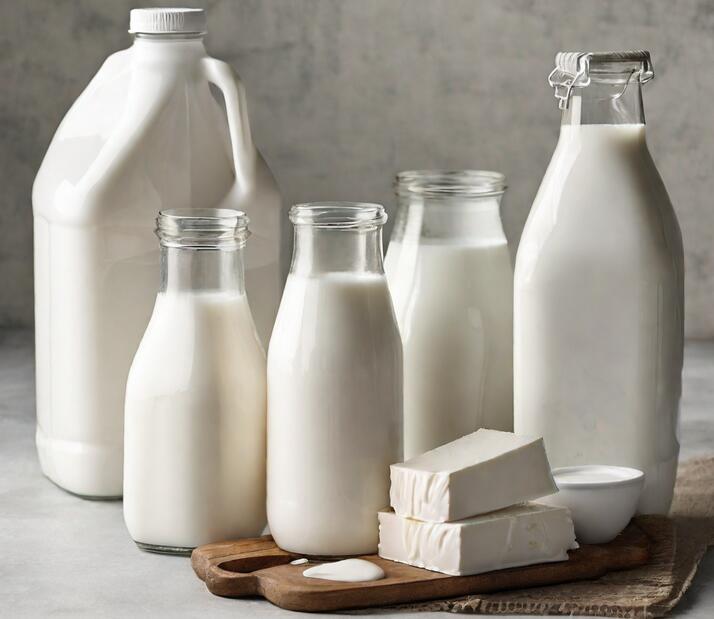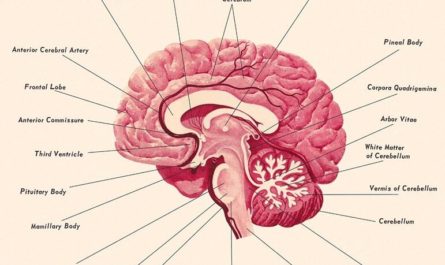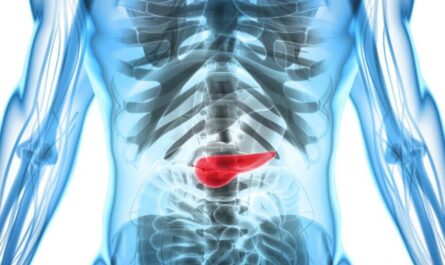Constipation is a common digestive issue that affects millions of people worldwide, both adults and children alike. It is characterized by infrequent bowel movements, typically fewer than three per week, and difficult or painful passage of stools. While various factors can contribute to constipation. This includes dehydration, lack of physical activity, and certain medications. In this article, we’ll explore the potential link between milk consumption and constipation.

The Connection Between Milk and Constipation
Milk is a staple in many people’s diets, providing essential nutrients such as calcium, vitamin D, and protein. However, milk’s nutritional composition may also contribute to constipation in some individuals. Milk is relatively high in fat and low in fiber, which can slow down digestion and lead to harder, drier stools that are more difficult to pass.
Moreover, certain proteins found in milk, particularly beta-casein and beta-lactoglobulin, have been linked to constipation. These proteins can have a binding effect on stool, making it more compact and harder to pass through the intestines. A study published in the journal “Pediatrics” found that children who consumed cow’s milk had a higher incidence of constipation compared to those who drank soy milk or no milk at all.
The Role of Lactose in Constipation
Lactose, the sugar found in milk and dairy products, can also contribute to constipation in some individuals. Lactose intolerance, a condition characterized by the inability to digest lactose properly, can lead to a range of digestive symptoms, including bloating, gas, diarrhea, and constipation.
When lactose is not fully digested, it can draw water into the intestines, leading to loose stools or diarrhea. However, in some cases, the body may respond by slowing down the digestive process, resulting in harder, drier stools and constipation.
Milk Alternatives and Constipation
For individuals who are lactose intolerant or sensitive to milk proteins, there are several milk alternatives available that may be less likely to cause constipation. These include:
- Soy milk
- Almond milk
- Oat milk
- Coconut milk
- Rice milk
These plant-based milk alternatives are often lower in fat and higher in fiber compared to cow’s milk, which can help promote regular bowel movements. However, it’s important to choose unsweetened varieties and be mindful of any additives or thickeners that may contribute to digestive issues.
Milk Intolerance and Constipation
Milk intolerance, also known as lactose intolerance, is a condition in which the body is unable to properly digest lactose, the sugar found in milk and dairy products. Symptoms of milk intolerance can vary from person to person, but common signs include:
- Bloating and gas
- Abdominal pain and cramping
- Nausea and vomiting
- Diarrhea or constipation
In children, milk intolerance may also manifest as asthma-like symptoms, eczema, or recurrent ear infections. When lactose is not properly digested, it can lead to stool hardening and difficulty passing, exacerbating constipation.
Study: Soy Milk vs. Cow’s Milk for Bowel Movements
A recent study published in the journal “Nutrients” compared the effects of beta-casein A1 and beta-casein A2 in cow’s milk on chronic functional constipation (CFC) in adults.
The study found that participants who consumed soy milk experienced improved bowel movements and less constipation compared to those who drank cow’s milk containing beta-casein A1.
| Milk Type | Bowel Movement Frequency | Stool Consistency |
|---|---|---|
| Soy Milk | 3.5 per week | Soft, easy to pass |
| Cow’s Milk (A1) | 2.8 per week | Hard, difficult to pass |
While more research is needed to fully understand the relationship between milk proteins and constipation, this study suggests that soy milk may be a better alternative for individuals prone to constipation.
Other Foods That Can Cause Constipation
1. Dairy Products
Dairy products, such as milk, cheese, and ice cream, can be major culprits when it comes to constipation. This is because they contain high amounts of fat and low amounts of fiber, which can slow down digestion and lead to hard, dry stools.
Additionally, some people may be lactose intolerant, meaning they have difficulty digesting the sugar found in milk and other dairy products. This can lead to bloating, gas, and constipation.
If you suspect that dairy may be contributing to your constipation, try reducing your intake or switching to lactose-free or plant-based alternatives, such as almond milk or coconut yogurt.
2. Red Meat
Red meat, such as beef, pork, and lamb, is another food that can contribute to constipation. This is because it is high in fat and low in fiber, which can slow down digestion and lead to hard, dry stools.
Red meat is also high in iron, which can be constipating for some people. This is because iron can bind to other nutrients in the gut, making them harder to absorb and leading to constipation.
If you enjoy eating red meat, try to limit your intake to once or twice a week and choose leaner cuts, such as sirloin or tenderloin. You can also pair red meat with high-fiber foods, such as vegetables or whole grains, to help keep things moving.
3. Processed Foods
Processed foods, such as chips, crackers, and cookies, are often high in fat and low in fiber, which can contribute to constipation. They also tend to be high in sodium, which can cause water retention and make stools harder to pass.
Additionally, many processed foods contain artificial ingredients and preservatives that can be difficult for the body to digest, leading to constipation and other digestive issues.
To avoid constipation caused by processed foods, try to limit your intake and choose whole, unprocessed foods whenever possible. This includes fruits, vegetables, whole grains, and lean proteins.
4. Fried Foods
Fried foods, such as french fries, fried chicken, and doughnuts, are high in fat and low in fiber, which can slow down digestion and contribute to constipation.
When foods are fried, they absorb large amounts of oil, which can be difficult for the body to digest. This can lead to hard, dry stools and other digestive issues.
If you enjoy fried foods, try to limit your intake and choose healthier cooking methods, such as baking, grilling, or roasting. You can also try air frying, which uses less oil and can be a healthier alternative to traditional frying.
5. Bananas
While bananas are often touted as a healthy snack, they can actually contribute to constipation in some people. This is because they are high in starch and low in fiber, which can slow down digestion and lead to hard, dry stools.
Bananas also contain a type of fiber called pectin, which can be constipating for some people. This is because pectin absorbs water in the gut, making stools harder to pass.
If you find that bananas are contributing to your constipation, try eating them in moderation or choosing other fruits that are higher in fiber, such as berries, apples, or pears.
6. White Rice
White rice is a staple food in many parts of the world, but it can also contribute to constipation. This is because it is low in fiber and high in starch, which can slow down digestion and lead to hard, dry stools.
When rice is processed to create white rice, the outer layer of the grain, which contains most of the fiber, is removed. This leaves behind a starchy, low-fiber food that can be difficult for the body to digest.
If you enjoy eating rice, try choosing brown rice instead of white. Brown rice is a whole grain that contains more fiber and nutrients than white rice, making it a healthier choice for digestive health.
7. Chocolate
Chocolate is a beloved treat for many people, but it can also be a trigger for constipation. This is because chocolate is high in fat and low in fiber, which can slow down digestion and lead to hard, dry stools.
Chocolate also contains caffeine and theobromine, which are stimulants that can cause dehydration and contribute to constipation.
If you find that chocolate is contributing to your constipation, try limiting your intake or choosing dark chocolate, which tends to be lower in fat and higher in fiber than milk chocolate.
8. Alcohol
Alcohol is a diuretic, meaning it can cause dehydration and contribute to constipation. When you drink alcohol, your body prioritizes processing the alcohol over other functions, including digestion. This can lead to hard, dry stools and other digestive issues.
Additionally, many alcoholic beverages, such as beer and wine, are high in sugar and low in fiber, which can further contribute to constipation.
If you choose to drink alcohol, try to do so in moderation and stay hydrated by drinking plenty of water. You can also choose lower-sugar options, such as vodka with soda water and lime.
9. Caffeine
Caffeine is a stimulant that can cause dehydration and contribute to constipation. When you consume caffeine, it can stimulate the muscles in your digestive tract, causing them to contract and move food through your system more quickly. While this may seem like a good thing, it can actually lead to hard, dry stools and other digestive issues.
Additionally, many caffeinated beverages, such as coffee and soda, are low in fiber and can further contribute to constipation.
If you enjoy consuming caffeine, try to do so in moderation and stay hydrated by drinking plenty of water. You can also choose lower-caffeine options, such as tea or decaf coffee.
10. Unripe Bananas
While ripe bananas can be constipating for some people, unripe bananas can be even more problematic. This is because unripe bananas are higher in starch and lower in fiber than ripe bananas, which can slow down digestion and lead to hard, dry stools.
Unripe bananas also contain a type of fiber called resistant starch, which can be difficult for the body to digest and can contribute to constipation.
If you enjoy eating bananas, try to choose ripe bananas that are soft and have a slightly sweet smell. You can also pair bananas with other high-fiber foods, such as berries or chia seeds, to help keep things moving.

11. Gluten-containing Foods
Gluten is a protein found in wheat, barley, and rye that can be difficult for some people to digest. While not everyone is sensitive to gluten, those who are may experience constipation and other digestive issues when they consume gluten-containing foods.
Gluten can cause inflammation in the gut, which can lead to constipation and other digestive problems. Additionally, many gluten-containing foods, such as bread and pasta, are low in fiber and can further contribute to constipation.
If you suspect that gluten may be contributing to your constipation, try eliminating gluten-containing foods from your diet for a few weeks to see if your symptoms improve. You can also choose gluten-free alternatives, such as quinoa, rice, or gluten-free bread and pasta.
12. Persimmons
Persimmons are sweet, orange-colored fruits that are popular in many parts of the world. While they can be a healthy addition to your diet, they can also contribute to constipation in some people.
This is because persimmons contain a type of tannin called shibuol, which can bind to other compounds in the gut and create a sticky, gel-like substance that can be difficult to pass. This can lead to hard, dry stools and other digestive issues.
If you enjoy eating persimmons, try to do so in moderation and pair them with other high-fiber foods, such as berries or leafy greens. You can also choose ripe persimmons, which tend to be lower in tannins than unripe persimmons.
Identifying Constipation in Children
Constipation is a common problem in children, and it’s important for parents to be aware of the signs and symptoms. In general, children should have at least one bowel movement per day, although this can vary depending on age and individual factors.
Mild constipation in children may present as:
- Straining during bowel movements
- Dry, hard, or small pellet-like stools
- In some cases, loose or watery stools (a sign of stool backing up in the intestines)
Infants may experience changes in stool color and consistency when introducing solid foods, which can sometimes lead to constipation. If your child is experiencing persistent or severe constipation, it’s important to consult with a pediatrician for personalized advice and treatment options.
The Bristol Stool Scale
The Bristol Stool Scale is a useful tool for assessing stool consistency and identifying constipation in children and adults. The scale classifies stools into seven types:
| Type | Description | Indication |
|---|---|---|
| 1 | Separate hard lumps, like nuts | Severe constipation |
| 2 | Sausage-shaped but lumpy | Mild constipation |
| 3 | Like a sausage but with cracks on the surface | Normal |
| 4 | Like a sausage or snake, smooth and soft | Normal |
| 5 | Soft blobs with clear-cut edges | Lacking fiber |
| 6 | Fluffy pieces with ragged edges, a mushy stool | Mild diarrhea |
| 7 | Watery, no solid pieces, entirely liquid | Severe diarrhea |
Types 1 and 2 indicate constipation, while types 3 and 4 are considered normal. Types 5 through 7 may suggest diarrhea or a lack of fiber in the diet. Using the Bristol Stool Scale can help you better understand your child’s bowel habits and identify potential issues.
Treating Constipation in Children
If your child is experiencing constipation, there are several strategies you can try at home to help alleviate symptoms:
- Increase water intake and ensure adequate hydration
- Encourage warm baths, which can help relax the muscles and promote bowel movements
- Use glycerin suppositories (solid or liquid) to help soften stools and stimulate bowel movements
- Apply digital stimulation, gently massaging the anus to encourage bowel movements
- Gradually increase fiber intake through fruits, vegetables, and whole grains (with caution in chronic constipation cases)
- Consider stool softeners or laxatives under the guidance of a pediatrician
Fiber Recommendations for Children
Adequate fiber intake is essential for maintaining healthy bowel function and preventing constipation in children. The American Academy of Pediatrics recommends the following daily fiber intake based on age:
| Age | Fiber Recommendation |
|---|---|
| 1-3 years | 19 grams |
| 4-8 years | 25 grams |
| 9-13 years (girls) | 26 grams |
| 9-13 years (boys) | 31 grams |
| 14-18 years (girls) | 26 grams |
| 14-18 years (boys) | 38 grams |
Good sources of fiber for children include:
- Fruits (especially berries, pears, and apples with skin)
- Vegetables (such as broccoli, carrots, and peas)
- Whole grains (like oatmeal, whole-wheat bread, and brown rice)
- Legumes (beans, lentils, and chickpeas)
Introducing fiber gradually and ensuring adequate hydration can help prevent gas and bloating, which may occur when increasing fiber intake too quickly.
Preventing Constipation: Diet and Lifestyle Changes
To prevent constipation and promote regular bowel movements, consider making the following diet and lifestyle changes:
- Ensure adequate fluid intake, aiming for at least 8 glasses of water per day
- Increase fiber consumption through a variety of fruits, vegetables, and whole grains
- Encourage regular physical activity, aiming for at least 30 minutes of exercise per day
- Establish a consistent bowel routine, setting aside time each day for undisturbed toilet visits
- Limit processed foods, which are often low in fiber and high in fat and sugar
- Consider incorporating probiotic-rich foods or supplements into your diet
When to Seek Medical Attention?
While occasional constipation is common and can often be managed at home, there are certain situations in which it’s important to seek medical attention:
- Severe or chronic constipation that does not respond to home remedies
- Presence of blood in the stool
- Abdominal pain or vomiting during or after meals
- Constipation is accompanied by other concerning symptoms, such as unexplained weight loss or fever
- Sudden changes in bowel habits that persist for more than a few weeks
Your healthcare provider can help identify any underlying causes of constipation and recommend appropriate treatment options. In some cases, they may refer you to a gastroenterologist, a specialist in digestive health, for further evaluation and management.
Conclusion
In conclusion, while milk and dairy products can contribute to constipation in some individuals, the relationship between milk and constipation is complex and multifaceted.
If you or your child are experiencing persistent or severe constipation, it’s important to consult with a healthcare professional for personalized advice and treatment options.
By making simple changes to your diet, such as increasing fiber and fluid intake, and incorporating regular physical activity into your routine, you can promote healthy bowel function.






